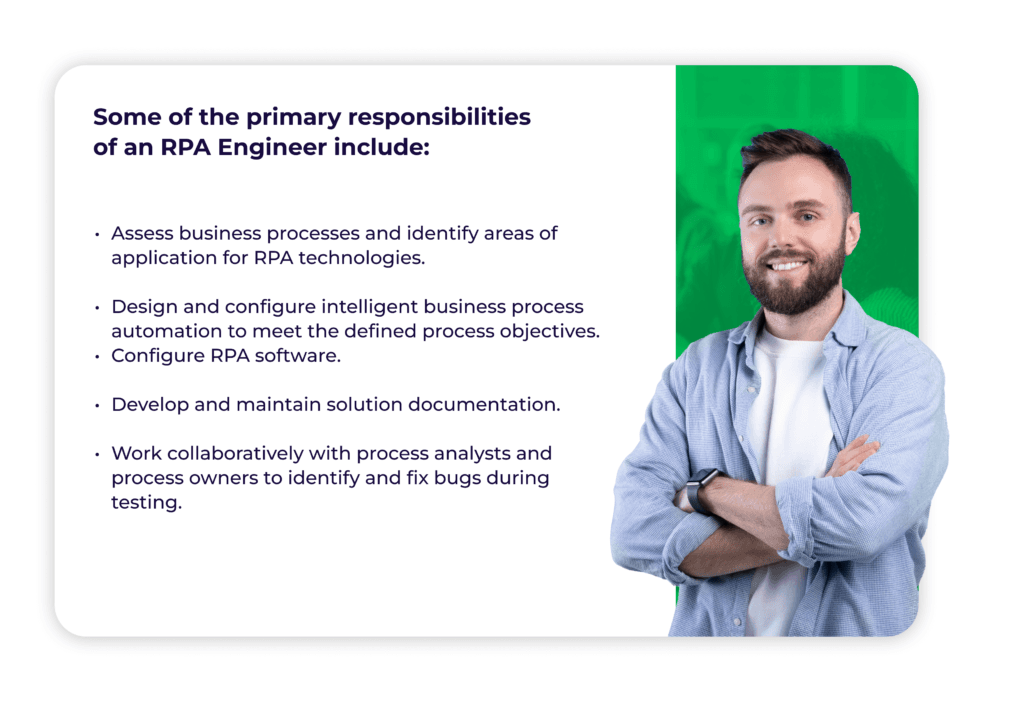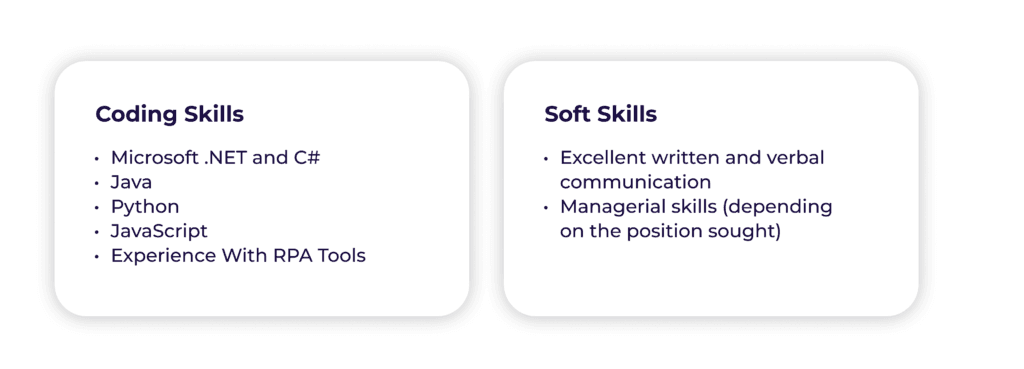Repetitive tasks are present in many job functions, from marketers to lawyers, accountants, and healthcare professionals. According to McKinsey Global, in 60% of US jobs, 30% or more of current work activities can be automated with available or announced technologies.
Robotic Process Automation (RPA) is the ideal technology for automating repetitive tasks. RPA is a rapidly emerging technology in the digital world and has already delivered significant benefits to organizations in terms of saving time, costs and increasing productivity.
Enterprises prioritize customer satisfaction by quickly and efficiently resolving customer queries with self-service portals and chatbots. Organizations must adopt other new technology trends to leverage RPA's benefits.
With the rise of Intelligent Automation, which fuses RPA and Artificial Intelligence (AI) technologies for more intuitive automation, the number of automatable processes will continue to increase, and the greater the success, the more companies will adopt the technology.
According to the Bureau of Labor Statistics (BLS), RPA Engineers are experiencing some of the most rapid job market growth as more and more companies turn to automation in their operations.
The BLS projects that employment of computer and information technology occupations, which includes RPA engineers, will grow 11% from 2019 to 2029, much faster than the average for all occupations.
Additionally, RPA engineers may also have opportunities for advancement into management positions as they gain experience and expertise in the field.
What is an RPA Engineer?
RPA engineers use specialist software to automate high-volume, rule-based tasks. Automation engineers working for Managed Service Providers are responsible for building the automated workflows, migrating a highly manual process to be handled by software bots.
An RPA Engineer specializes in designing, developing, and implementing automation solutions using RPA software tools. They are responsible for creating, testing, and deploying software robots to automate repetitive and mundane tasks, such as data entry, report generation, and customer service.
What Do RPA Engineers Do?
RPA engineers work closely with business analysts, process owners, and IT teams to identify opportunities for automation and design solutions that improve efficiency, accuracy, and productivity. They use programming languages and RPA software tools to build bots that mimic human actions and interact with different systems and applications.
In addition to developing automation solutions, RPA Engineers provide ongoing support and maintenance to ensure the bots run smoothly and meet the business requirements. They monitor the bots' performance, troubleshoot issues, and make necessary updates and enhancements to improve their functionality.
Some of the primary responsibilities of an RPA Engineer include:
- Assess business processes and identify areas of application for RPA technologies.
- Design and configure intelligent business process automation to meet the defined process objectives.
- Configure RPA software.
- Develop and maintain solution documentation.
- Comply with and help to enforce design and coding standards, policies, and procedures.
- Work collaboratively with process analysts and process owners to identify and fix bugs during testing.
- Monitor automated processes and perform application troubleshooting to improve the overall robustness of automations continuously.
- Develop and deliver workshops and training on best practices and methodologies.

What Skills Must an RPA Engineer Possess?
RPA development requires specific expertise; an RPA Engineer must possess “hard” and “soft” skills to succeed. Hard skills include knowledge of programming languages and experience with automation programs. Soft skills include effective communication with people from diverse technical and non-technical backgrounds.
Engineers may also need to understand business processes, finances, and negotiation practices depending on the job. The best RPA engineers possess both hard and soft skills.
Below are some of the essential skills RPA Engineers should have.

How to Recruit an RPA Engineer
If your company wants to automate more of its business processes or add RPA services to your business model, you must employ skilled RPA engineers, which can be challenging. Fortunately, there is more than one way to find qualified talent.
Posting to job boards: Writing a job description and posting to a job board.
Hiring a recruiting agency: Source skilled candidates by working with a recruiting agency.
RPA is a rapidly emerging technology that has significantly benefited organizations by saving time, costs and increasing productivity.
RPA engineers are vital in designing, developing, and implementing automation solutions using RPA software tools.
As the demand for automation continues to grow, the job market for RPA engineers is rapidly expanding. To recruit skilled talent, companies can post job descriptions on job boards or work with recruiting agencies. With the right skills and expertise, RPA engineers can help organizations achieve greater efficiency, accuracy, and productivity through automation.
If you want to dive into the world of intelligent automation with ElectroNeek, check out these helpful resources:
